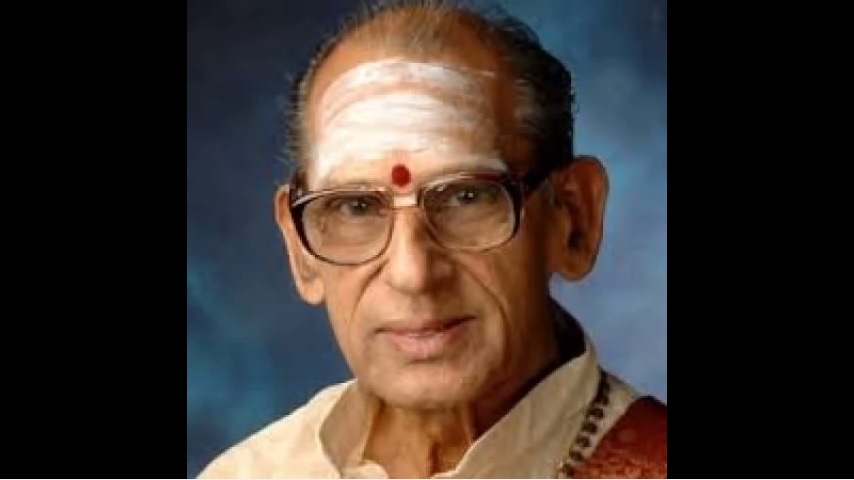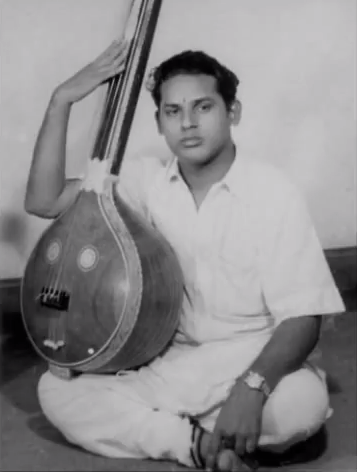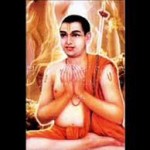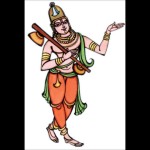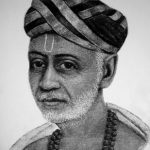In line with our primarily music and mostly Carnatic focus these past few weeks, our next great Andhra Personality is one who is synonymous with Annamayya. Exactly a year since he passed away, this Post is dedicated to the Life and Legacy of Musical Maestro and Guru of many famous students, Sri Nedunuri Krishnamurthy.
Background
Nedunuri Krishnamurthy was born on October 10, 1927 to Ramamurthy Panthulu and Vijayalakshmi in Kothapalli (Pithapuram taluk), East Godavari district. He was the youngest of four sons, and learned varnams in his youth, under local vidvans. His mother was herself part of vaunted lineage of musicians, and one which he himself would go on to ornament in the highest fashion. He studied under Dwaram Narasingha Rao Naidu and later Sripada Pinakapani, via Government Music College, Vizianagaram.
Later, he went on to become a top rank vocalist for All India Radio, and soon, was giving performances globally. He would eventually lead all four of the major Andhra Pradesh music colleges. Following this he became Dean of Faculty of Fine Arts and Chairman, Board of Studies in music of the S.V. and Nagarjuna Universities.
He is survived by two daughters and a son, namesake of his guru, Pinakapani Nedunuri.
Above all, however, it is his commitment to the classical Carnatic tradition, and refinement and taste over passing pop-culture fads, that mark him as a top-rank performer, and fine arts leader.
Achievements

Known as Gayaka Choodamani, Nedunuri gaaru’s imprint on India’s classical (saastriya) musical tradition is undeniable. Indeed, at a time when the Carnatic world is becoming westernised and the Hindustani world is becoming bollywoodised, his efforts at reviving tradition and passing it on to the next generation were exemplary. As a musician, he had the honour and the skill to tune the compositions of Annamacharya to universal acclaim and eternal fame. “Nedunuri tunes to 108 Bhadrachala Ramadasu Kirthanas and ‘Dasarathi Satakam Poems’ are ‘fountains of Bhakti Rasa” [7] It is not for nothing he is referred to as “The Doyen of Carnatic”.
Nedunuri’s Notations have been acclaimed as unique universally.
He was committed to passing on to posterity his vast accumulation of knowledge, teaching not only music, but Sanskrit and Telugu as well. His students include such famed musicians as Padma Shri Shobha Raju, Garimella Balakrishna, and the Malladi Brothers. But his personal achievements and awards were no less impressive:
- Central Sangeeth Natak Academy award in 1986
- He had the unique distinction of serving as the Principal of all four of the major AP state music colleges.
- Received the Kalaaneerajanam Puraskar of Govt. of AP in 1995
- Winner of the Best Vocalist award of the Madras Music Academy twice
- Oversaw ‘Annamacharya Padartha Prakasika’ a treatise giving the quintessence, in Telugu, of the 108 compositions of Annamayya tuned by Nedunuri
- Asthana Vidvan of TTD and Asthana Sangeeta Vidvan of Kanchi Kamakoti Peetha
- Established the Nadasudha Tarangini Trust to preserve and pass on the chaste traditional values of Carnatic
https://www.youtube.com/watch?v=QhGgaZdyqJI
Legacy
Telugu is very important. Language is very important, for a musician.
The Carnatic world mourned the passing of Nedunuri gaaru, exactly one year ago. After a long battle with lung cancer he left the world on December 8, 2014. And yet, despite the passage of time, his legacy very much remains in the hearts and minds of those who admired his skill and his adherence to tradition. In fact, he established the Nadasudha Tarangini Trust for this very purpose. “Under the auspices of ‘Nadasudha Tarangini’ three volumes of Annamayya Pada Sourabham consisting of 108 Annamacharya compositions (set to tune by Nedunuri) with notation have been published. ” [7] Perhaps it is for this reason his renditions of not only Annamacharya, but Telangana stalwart Bhadrachalam Ramadasu have become very popular, and his dedication to the former’s Sankeerthana is recognised by all.
There is no sangeetha sabha within and outside the country (US, UK, Canada, Australia and Singapore in particular) for which he did not sing.[3]
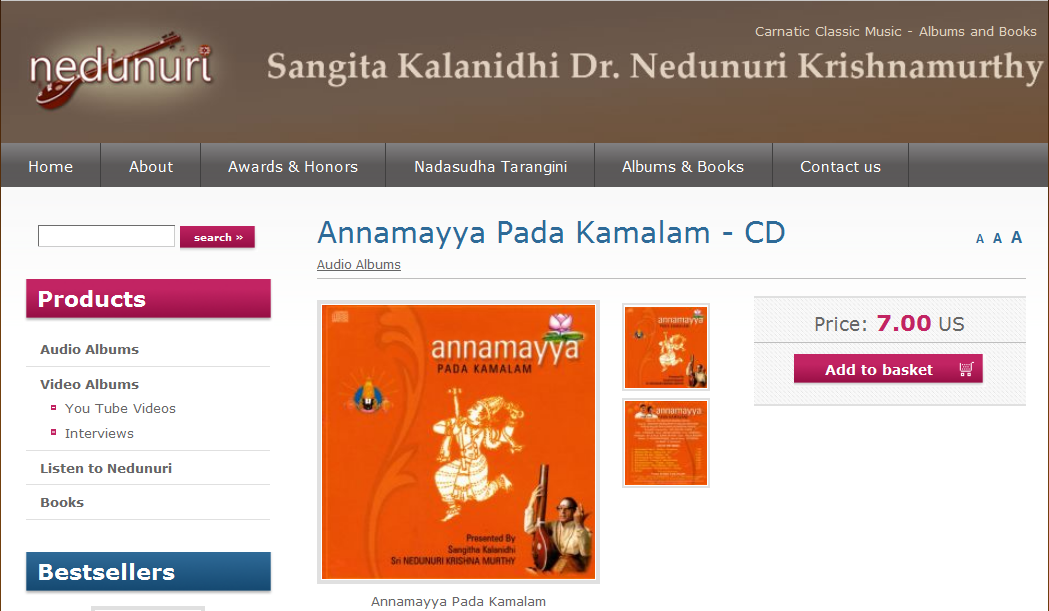
He set the tune to the Annamaya tunes we enjoy, but we do not honour him, after all, we Telugus have phillim stars to worship.
It is the height of travesty that this highly accomplished vocalist and violinist did not receive a Padma award, while B-grade Bollywood clowns and third rank film stars have managed this through political sycophancy and personal compromise. The man whose musical notation brought to life the poetic majesty of Annamayya, remained committed to music, despite this slight. But perhaps that is the greatest lesson of this sishya of a Padma Bhushan and guru of Padma Shris: commitment to carnatic excellence and personal integrity are greater than any political award. Put another way, it is not titles that honour men, but men who honour titles. This Asthana Vidvan of the Tirumala Tirupati Devasthanams and Kanchi Kamakota Peetha received spiritual recognition that no popularity contest could match. His Sangeeta Kalanidhi award from the prestigious Madras Music Academy alone shows his place among true connoisseurs of the arts. His love of language not only extended to his own mother tongue, Telugu, but also recognised others as well. ” Sri Nedunuri found great value in team efforts and a willingness to accept Tamil compositions that he felt as deep and effective for audiences across India.”[5] As such, he mastered diction not only in Telugu but in Tamil as well. He remains ‘Nada Yogi‘ to all who appreciate the classical tradition.
He overcame poverty in his youth, learned Sanskrit and Hindi due to free instruction, and studied under great masters and musicologists to make an imprint of his own. Balancing this traditionalism, there was a style and delicacy that he maintained.
Nedunuri’s style was the epitome of elegance with an emphasis on aesthetics and subtle embellishments. His was a smooth and delicate voice that handled nuances with ease belying the practice and rigour that were behind it.[2]
The best way, however, to remember this great Andhra Personality and Carnatic master is through the words of his very own students.
https://www.youtube.com/watch?time_continue=16&v=heCUjybcpSA
References:
- http://www.nedunuri.com/about.html
- http://www.thehindu.com/todays-paper/tp-features/tp-fridayreview/article3217349.ece
- http://www.thehindu.com/todays-paper/tp-features/tp-fridayreview/article3217349.ece
- http://www.thehindu.com/news/national/andhra-pradesh/pithapuram-mourns-sangeeta-kalanidhi-nedunuri/article6673486.ece
- http://www.carnaticdarbar.com/news/201401/20141211.asp
- http://carnaticdarbar.com/legends/Maestros/legends_nedunuri.asp
- http://nedunuri.com/documents/NedunuriResume.pdf
